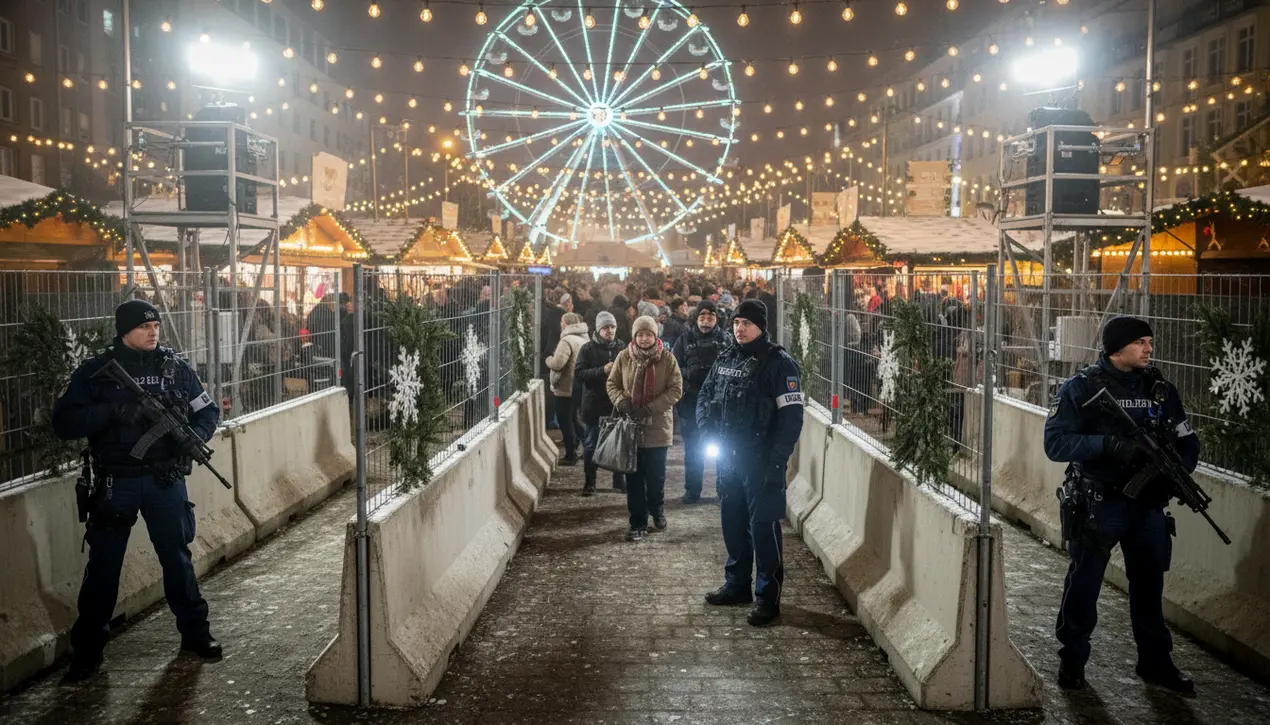
Othertravel & tourismTravel Restrictions
Germany Enhances Christmas Market Security for 2025 Season.
OL
Oliver Scott
1 day ago7 min read6 comments
The familiar glow of Germany’s Christmas markets, those historic bastions of festive cheer with their scents of mulled wine and roasting chestnuts, will be cast against a starkly different backdrop for the 2025 season. In a move that risk analysts and security consultants have been quietly predicting since the watershed 2016 Berlin Breitscheidplatz attack, federal and local authorities are implementing a sweeping, multi-layered security framework that fundamentally recalibrates the balance between public celebration and public safety.This is not merely an incremental upgrade; it is a systemic hardening of soft targets, a direct response to an evolving threat landscape where crowded, symbolic public gatherings remain high-value objectives for malign actors. The visible measures—the robust, anti-ram steel barriers strategically channeling foot traffic into controlled checkpoints, the significantly increased presence of both uniformed and plain-clothes police patrols weaving through the crowds, and the ubiquitous surveillance drones humming overhead—are just the tip of the spear.Beneath the surface lies a complex web of integrated command centers, real-time data fusion from municipal CCTV networks, and advanced behavioral analysis units trained to spot anomalies in a sea of revelry. The financial and operational burden on host cities is immense, with Munich, Nuremberg, and Cologne alone allocating tens of millions of euros from their annual budgets to fund what is essentially a counter-terrorism operation dressed in festive lighting.This proactive stance, while reassuring to a public still haunted by past tragedies, carries its own set of consequences and trade-offs. Security experts from the German Institute for Defence and Strategic Studies warn of a potential 'security theater' effect if measures are perceived as overly intrusive without demonstrably enhancing safety, potentially dampening the very atmosphere these markets are famed for.Conversely, private security firms contracted for the season argue that overt, visible deterrence is a critical component in disrupting potential attack planning. The economic implications are equally profound; vendors, who rely on the high-volume, cash-heavy six-week season for a substantial portion of their annual revenue, express cautious optimism that the enhanced security will foster greater public confidence and higher attendance, offsetting the inevitable logistical friction.From a geopolitical risk perspective, Germany’s 2025 Christmas market strategy serves as a bellwether for how European nations are adapting to a persistent, low-intensity threat environment. It reflects a painful but necessary acceptance that traditional notions of open, unencumbered public space have been irrevocably altered.The sight of armored vehicles parked near wooden stalls selling handmade ornaments is a jarring but definitive image of our times, a testament to a nation determined to preserve its cherished traditions without compromising on the fundamental duty of protecting its citizens. The success of this high-stakes balancing act will be measured not just in the absence of incidents, but in whether the spirit of Gemütlichkeit can survive within a fortress of prudent caution.
#featured
#Germany
#Christmas markets
#security measures
#barriers
#patrols
#public safety
#tourism
Stay Informed. Act Smarter.
Get weekly highlights, major headlines, and expert insights — then put your knowledge to work in our live prediction markets.
Comments
Loading comments...
© 2025 Outpoll Service LTD. All rights reserved.